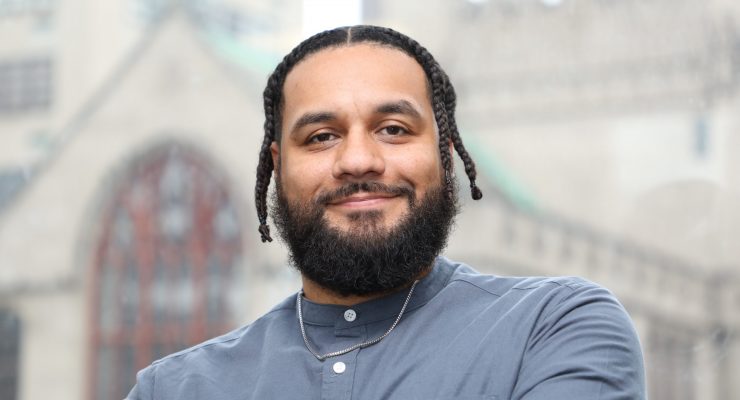In my almost twenty years of working with system-impacted individuals my goals have always been two-fold: 1. Advocate for those incarcerated or formerly incarcerated; 2. Do what I can to chip away at a system that is premised on violence, harm, and social stratification based on race, class, gender, age, ability, and geographic location. In early 2021, I began facilitating restorative justice programming within New York City juvenile facilities.1 This led to teaching a credit-bearing Introduction to Sociology course in spring 2023. To date, thirty-nine youth have received college credit. This success is not magic or luck, but rather a collective effort of many individuals and organizations who supported, trusted, and gave space for this course to grow. Here, I reflect on the three main areas that made this course thrive.
Earning Trust
Building trust within carceral settings, specifically with youth, takes time and patience. It is built through consistency and reliability. Weekly programming highlights the former and following up on previous meetings underscores the latter. The main concern is that I am not a cop. In this space, my approach could not simply be dismissive of this concern but rather reassuring them by giving a level of transparency about myself, the work that I do, and my opinions on the criminal justice system. For many, their entire world has been policed, even beyond traditional law enforcement contact. Creating a space that allows for open discussion is a tactic I have used to earn trust. Finally, trust is built through various incentives such as reading materials from comics to academic books, a variety of snacks, and the use of a tablet with downloaded music, which is both used as a learning tool and a recreational activity.
Modified Learning
There are a variety of restrictions imposed on the youth such as not having access to the internet, smart devices, or other electronic tools. Even traditional learning tools such as pens, notebooks, and textbooks have restrictions. For example, youth are only able to use “jail pens” which are short, translucent, flexible pens (that quickly run out of ink), cannot have notepads with spiral metal binds, or have textbooks with hardcovers. To both comply with and circumvent this restricted access to learning, I created a customized softcover textbook and playing cards as well as purchased “jail pens” and other supplies such as notepads all within compliance of facility rules.2 The textbook provides a curated learning experience of understanding traditional sociological theory, themes, and concepts in a palatable manner that does not rely on generic or out-of-touch examples. The playing cards, which feature sociological and restorative justice terms yields a certain level of osmosis. Many of the youth play a variety of card games throughout the day, which reinforces memorization and learning as they use the cards.
The main concern is that I am not a cop. In this space, my approach could not simply be dismissive of this concern but rather reassuring them by giving a level of transparency about myself, the work that I do, and my opinions on the criminal justice system. For many, their entire world has been policed, even beyond traditional law enforcement contact. Creating a space that allows for open discussion is a tactic I have used to earn trust.
– Calvin John Smiley
Limits of Theory and Need for Practice
As I teach, I attempt to avoid abstract jargon. Instead, I begin with a question: “If offered a pair of Payless or Jordan sneakers, which would you choose?” Almost exclusively, the youth choose the latter. I follow up with “why?” This exercise allows me to introduce the concept of sociology in a tangible and applied manner. I highlight how individuals (e.g., Michael Jordan) influence society and how society (i.e., consumer culture) influences individuals, showcasing the basis of sociological inquiry. Further, I incorporate drill music,3 a subgenre of hip hop, as a space to have discussions on structural violence and insight into the experiences of poverty; being witness, victim, and perpetrator of violence; and vulnerabilities surrounding mental health and drug abuse. Ultimately, drill is a voice for many urban impoverished Gen Z youth to articulate and archive their experiences. I embrace this music to help educate and articulate sociological concepts. For example, students have written essays on how lyrics discuss individual pain and institutional trauma. Additionally, artists are storytellers, providing opportunities for qualitative analysis of lyrics.
Education as Abolition
Activist, organizer, and prison abolitionist, Mariame Kaba, says, “Hope is a discipline,4” which reminds us that change does not come from only wanting it but through the work we do. In sum, hope is an action. This is my goal with teaching inside youth facilities. The expansion of more social science courses will not happen overnight but “we are building the plane while flying it.” We are learning, crafting, and continuing to expand our vision. My hope is to continue to offer social science courses to incarcerated youth in New York City, expanding beyond Introduction to Sociology. We already have proof of concept as a student from the spring 2023 cohort was released, graduated from high school, and enrolled in a CUNY community college with the plan of double-majoring in Nursing and Sociology. The tools, talents, and gifts are there, we just need to give our youth the opportunity and hope.
Calvin John Smiley, Ph.D., is an associate professor of sociology at Hunter College-CUNY. Smiley’s scholarly work addresses social justice, inequality, and race. He is the author of two books. Purgatory Citizenship: Reentry, Race, and Abolition (2023), explores how individuals navigate and negotiate reentry after leaving carceral spaces with diminished legal rights and amplified social stigmas. Defund: Conversations Towards Abolition (2024), examines the 2020 uprisings that led to the global call for the defund of police and carceral apparatuses. Beyond this, he is the co-editor, along with Keesha M. Middlemass, of Prisoner Reentry in the 21st Century: Critical Perspectives of Coming Home (2020). Outside of academic work, Smiley works with incarcerated youth in New York City.


Comments